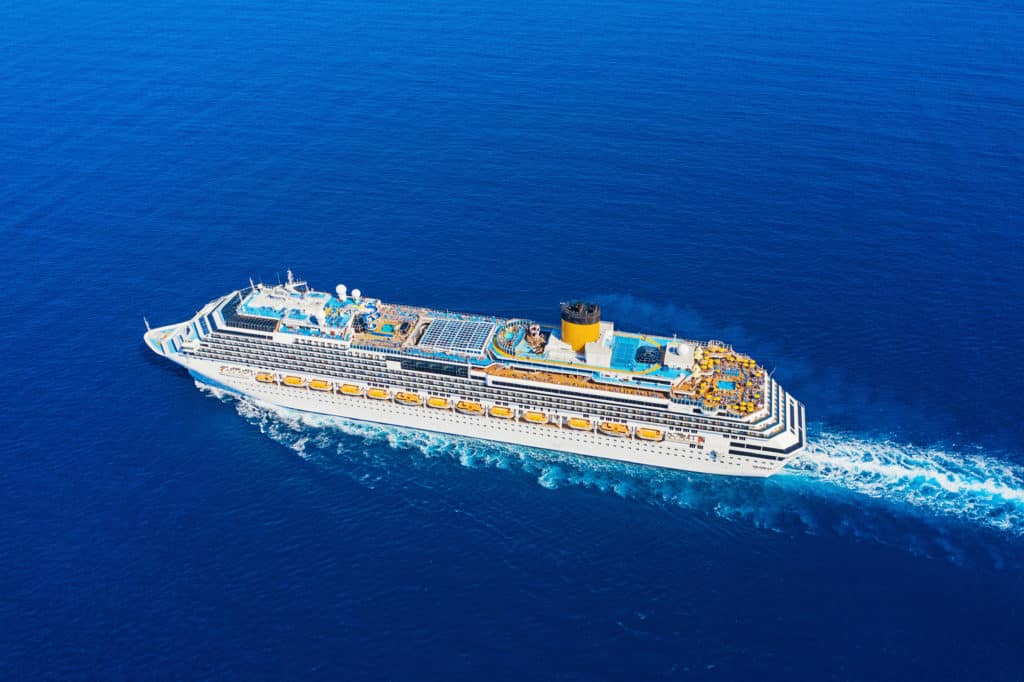Cruise lines were a high-profile industry hit early by the coronavirus pandemic.
In the spring of this year, thousands of passengers and crew members were stranded at sea as the pandemic virus infected their boats at the same time it began to spread across the globe. Subsequently, “no sail” orders were imposed in the United States and other countries, shutting down activity for all passenger ships.

Recognizing the devastating economic impact of a dormant fleet, this fall several cruise lines concluded that because their ships could no longer be filled with passengers, some were more valuable if sold for scrap metal. Turning the cruise liners into scrap metal raises needed cash and avoids storage costs for unused vessels.
A number of ships from the major cruise lines have landed in a ship breaking yard in Aliaga, on the western coast of Turkey. The Aliaga port recycling yard has reported a 30 percent increase in business this year compared to 2019. There, Carnival Cruise Lines sold three of the ships from its Fantasy Fleet for scrap: Inspiration, Imagination and Fantasy. Carnival reported a loss of $2.9 billion for the quarter that ended Aug. 31. At that time the company announced it would remove 18 of its older, less efficient ships from its fleet. Often times, larger cruise lines will sell their older ships to a smaller cruise operator and the same ship will sail for decades under different names. This has also changed due to the crisis. Smaller cruise lines are not in the market for new ships, hence cruise ships are being scrapped. In addition to Carnival, this year Princess Cruises, Costa Cruises, and Royal Caribbean subsidiary Pullmantur Cruises, among others, all sold ships for scrap metal.
Cruise lines are not the only shipping companies selling vessels for scrap metal this year.
Other manufacturing entities hit by the pandemic are turning their ships–like car-carrying vessels and iron-ore haulers– into cash. According to the Wall Street Journal, vessel operators can, on average, recoup about 20 percent of the original purchase price of a 25-year old ship by selling it to a recycling company. The U.K.-based maritime data provider, VesselsValue, has documented this year’s trend as reported in the New York Times. Some 22 ore carriers were scrapped in 2020 so far, compared to 12 in 2019 and 2 in 2018.
Major ship breaking yards today are located in Turkey, India, Pakistan, and Bangladesh where labor costs are lower and there are fewer environmental laws. In the United States, however, some scrap metal recyclers have a long history of recycling marine vessels, be they barges, Navy ships or recreational boats. Ship breaking as an industry soared after World War I and World War II, when hundreds of damaged or obsolete warships were sold for scrap. Although less in demand than other scrap metal recycling opportunities for automotive or industrial scrap, the business continues to prosper to this day.
U.S. scrap metal recyclers today near the coasts or around the Great Lakes who do handle ship recycling do so with careful attention to environmental impact and implement numerous safety and environmental practices in the process.
Decommissioned naval ships, for instance, if they are scrapped, must be handled by a U.S. facility that follows safety, health and environmental regulations. Recycling marine scrap metal in this manner is important because, like all scrap metal recycling, it helps reduce manufacturing costs, preserves natural resources and helps the environment.
The U.S. “no-sail” order for cruises expired on Oct. 31, but there is a phased approach to when and how cruises can begin again. Although one of the hardest-hit sectors, the cruise industry is anticipating a pickup in business once the pandemic ends. In the meantime, however, it joins a long list of other industries recognizing the value of recycling obsolete inventory through the process of scrap metal recycling.
ScrapWare Corp., of Rockville, MD, has been providing software to the scrap metal recycling industry for over 30 years. ScrapWare uses an Oracle database to provide a cloud-based software solution to manage all aspects of a recycling business. With numerous modules, extensive technical support, remote installation and online training, ScrapWare helps recycling companies with compliance, efficiency and profitability. Check out ScrapWare’s website, read the user testimonials, and see its offerings for your recycling software solution.
